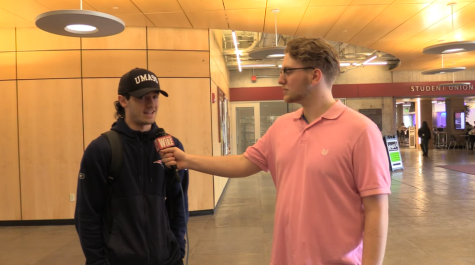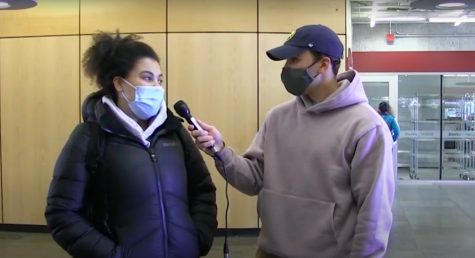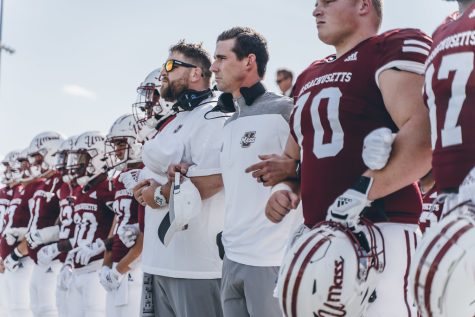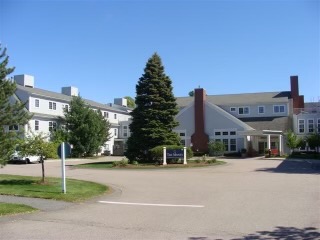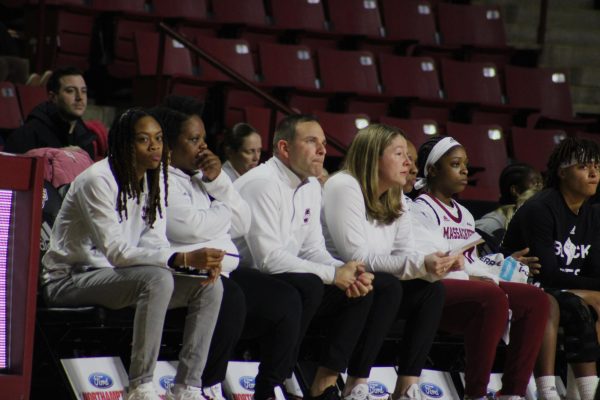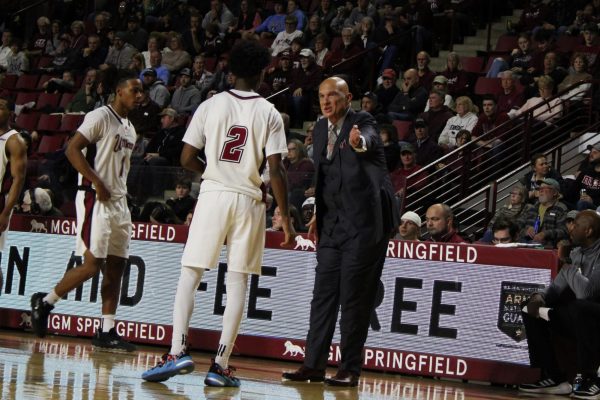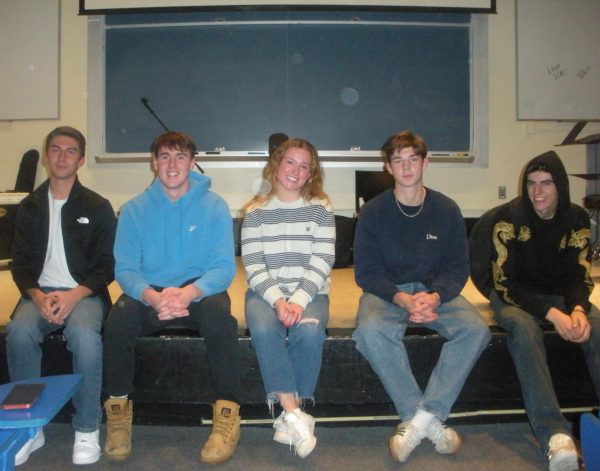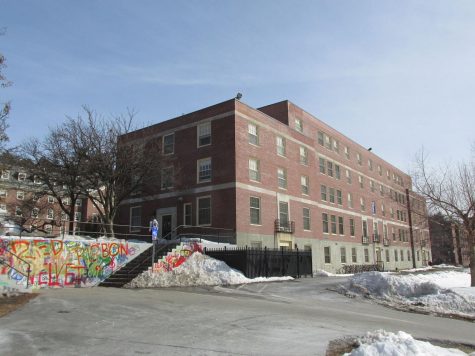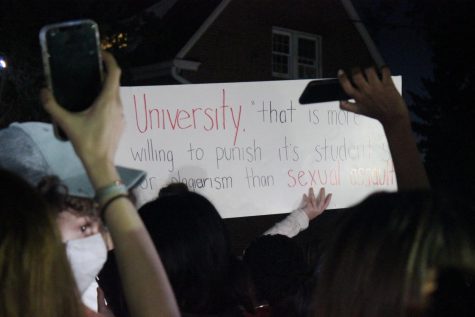Just add water: Stockbridge students explore the future of farming
AMHERST—In the past two years, the University of Massachusetts Amherst took great strides to invest in sustainability on campus.
Its most recent investment? A student organized hydroponic farm.
Dana Lucas, a senior sustainable food and farming major, and Evan Chakrin, a junior non-traditional horticulture student, both said they came to UMass interested in studying hydroponic production, the practice of growing plants in nutrient rich solutions rather than in soil. However, they were disappointed to find the school did not offer formal hydroponics classes.
They saw a void in UMass’ agricultural program and filled it with water.
“We started campaigning together for a place on campus to study and basically get hands-on experience,” said Chakrin.
In Dec. 2016, the project partners received a $5,000 grant from the Stockbridge School of Agriculture to create the first on-campus hydroponic farm, more commonly known as UMass Hydrofarm.
Located in the Clark Hall Greenhouse across from Franklin Dining Commons, the farm grows produce, like strawberries, leafy greens and tomatoes. These are grown in rafts (floating, hole-punched Styrofoam boards), vertically stacked trays and a dutch bucket system (a collection of buckets attached by a recirculating water hose that provide nutrients to plant roots).
Chakrin said the systems are also cleaner and greener than traditional soil agriculture because of their lack of pesticides and lower water and nutrient usage due to their recirculating nature.
“All the systems run based on a reservoir beneath them,” he said. “Water pumps to one end of the raft or the tray and it naturally drains back to the other end where we can add back or monitor nutrient strength … Our only losses of nutrients are what the plants absorbed basically.”
The farm also operates under what is known as “controlled environmental agriculture.” This means students can regulate the temperature and light the plants grow in. Chakrin said this aspect ensures pure sustainability because the growing and harvesting period for the farm doesn’t have a set timeline.
“You can basically grow anywhere and all year round as if it were the middle of summer,” he said. “This means maximum growth rates and really healthy plants.”
Lucas said the farm’s features can help establish and launch new educational initiatives at the university to study urban farming and the modern techniques necessary to feed communities without space for rolling hills or lush fields.
Jack Gallagher, a senior in sustainable horticulture, agreed.
“In a world where we are losing resources,” he said. “This lessens the amount we have to use to produce food. In the cities we have today — Manhattan, Boston, Springfield — we really need that.”
These ideas directly relate to Chakrin and Lucas’ statements in their 2016 greenhouse petition, that the focus on hydroponic operations would also help Stockbridge remain “relevant in the world’s changing food needs.”
This semester, the greenhouse has already attracted 12 undergraduate students with a variety of agricultural goals. While some individuals like Mia Cogliano, a senior sustainable food and farming major, wish to try hydroponics for the first time, other students like Serena Hooper, a junior sustainable food and farming major, want to plan for the future.
“I want to have a farm of my own and am interested in what we can do to enhance the food system,” said Hooper. “Right now, as it is with farming, we are experiencing environmental degradation and learning how to plant hydroponically could be helpful.”
For others like Gallagher, the sky isn’t the limit.
“I’m sorry but I don’t want to die on Earth; I want to die on Mars,” he said. “I have to show that, yes, I can survive without soil, I can do hydroponics and I can go to Mars.”
As for the future of sustainability and production at UMass, Lucas said the possibilities are endless.
Email Maria at [email protected].

